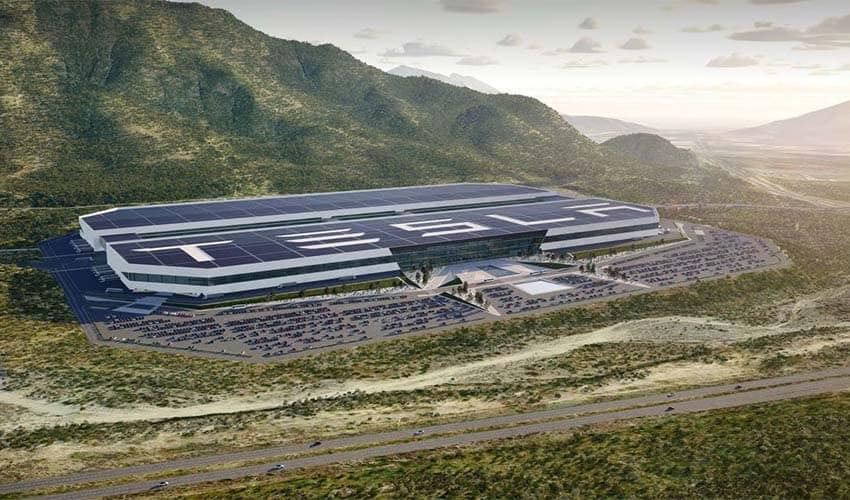Mexico in Numbers: Electric vehicles

Electric vehicle (EV) manufacturing is playing an increasingly prominent role in Mexican industry, with multiple large automakers investing in EV plants in the country. Earlier this year, BMW announced the construction of an EV manufacturing plant in San Luis Potosí, and Tesla announced their much-anticipated plans to build a gigafactory in Nuevo León. While these factories could turn Mexico into an EV manufacturing hub, sales of electric or hybrid vehicles in the domestic market are still low.
In this edition of Mexico in Numbers we explore both the small but growing domestic market for electric and hybrid vehicles, as well as the impact on Mexico’s automotive manufacturing industry.
How much has the EV/hybrid sector grown in Mexico?
First, a clarification on terminology. Electric vehicles (EVs) do not have a gasoline tank and are battery powered, while there are two categories of hybrid vehicles that are also included in INEGI statistical data: hybrids and plug-in hybrids (PHEVs), both of which still have a gasoline tank and internal combustion engine. Hybrids cannot be charged by plugging into an outside power source, while PHEVs can. We will refer to these categories separately below.
In January and February this year, 2,022 plug-in hybrid or fully electric vehicles were sold, representing an increase of 65.87% compared to the same months last year. Of these, 665 units were fully electric, a surge of 181% from January 2022. That growth was even more pronounced between 2021 and 2022, with sales jumping 394%, according to the national statistics agency, INEGI.
Nearly one-third of all EV/hybrid sales take place in Mexico City. This is followed by the state of México, at 18%; Jalisco, at 10%; and Nuevo León, at 9% – all states home to major urban population centers. The most popular model is the JAC E10X, which represented a market share of 15% in 2022. The BYD D1 – an electric taxi designed exclusively for ride hailing app DiDi, is also seeing increasing popularity in the capital.
Despite this growth, EV sales make up only a small proportion of the total number of vehicles sold in the country. In 2022, only 0.5% of 1,090,000 total vehicle sales were fully electric, a percentage that falls well below other markets, such as China, Europe and the United States, the global frontrunners. Over half of the world’s EV sales take place in China, and sales in Europe and the U.S. increased by 15% and 55% in 2022, respectively.
Even outside of these major markets, Mexico lags behind other countries. EV sales in Thailand made up 3% of the total in 2022, and India and Indonesia each saw EV sales increase to 1.5% of the total.
The issue of infrastructure
Mexico’s lack of EV infrastructure, such as charging stations, is one reason why sales are low compared to other global markets. According to 2022 data reported by Industria Nacional de Autopartes (INA), there are only 1,189 EV charging stations in the entire country. For comparison, the U.S. has 42,500 charging stations. The Netherlands, which has a population of less than 18 million people, has 58,500 EV charging points.
In Mexico City, where most of the country’s EV sales occur, there are 272 stations (the biggest concentration in the country), and the second largest number can be found in Jalisco (126), where Mexico’s second-largest metropolis, Guadalajara, is located. Next comes Nuevo León, México state, and Baja California, which all have major urban areas. According to the Federal Electricity Commission, Mexico needs 38,000 more charging stations to supply power to the 700,000 EVs expected to be on the road by 2041.
Cost is another barrier to EV adoption. In Mexico, the most affordable hybrid or electric option has a list price of US $24,000 and Tesla’s cheapest option is US $55,000 (plus the cost of a charger), while the cost of a conventional gas-powered car is US $17,500. Meanwhile, the average Mexican earns US $366 a month, and there are few subsidies for consumers. However, the Mexican government has made some attempts to encourage the sales of new EVs, with tax breaks of up to 38,400 pesos, exemptions from Mexico City’s “Hoy No Circula” traffic restrictions – where cars are banned from using public roads on days with high levels of pollution – and the waiving of registration fees.
The impact on Mexican industry
The opening of EV factories in Mexico will pave the way for the country to become a center of the production of hybrid and electric vehicles, and is expected to boost job creation, particularly for those with tech-related skills such as systems engineering, embedded software, cybersecurity and cloud computing. The National Auto Parts Industry expects the number of people employed in the sector to increase by 2.9% this year compared to 2022, reaching a total of 903,000.
Foreign trade has also continued to strengthen – due in part to Mexico’s strong automotive manufacturing industry. In January, auto parts exports amounted to US $7.3 billion, with 92% of them directed towards the United States and Canada. This led to a trade surplus of over US $2 billion.
With reports from El Financiero
Source: Mexico News Daily

